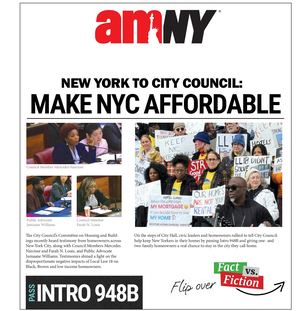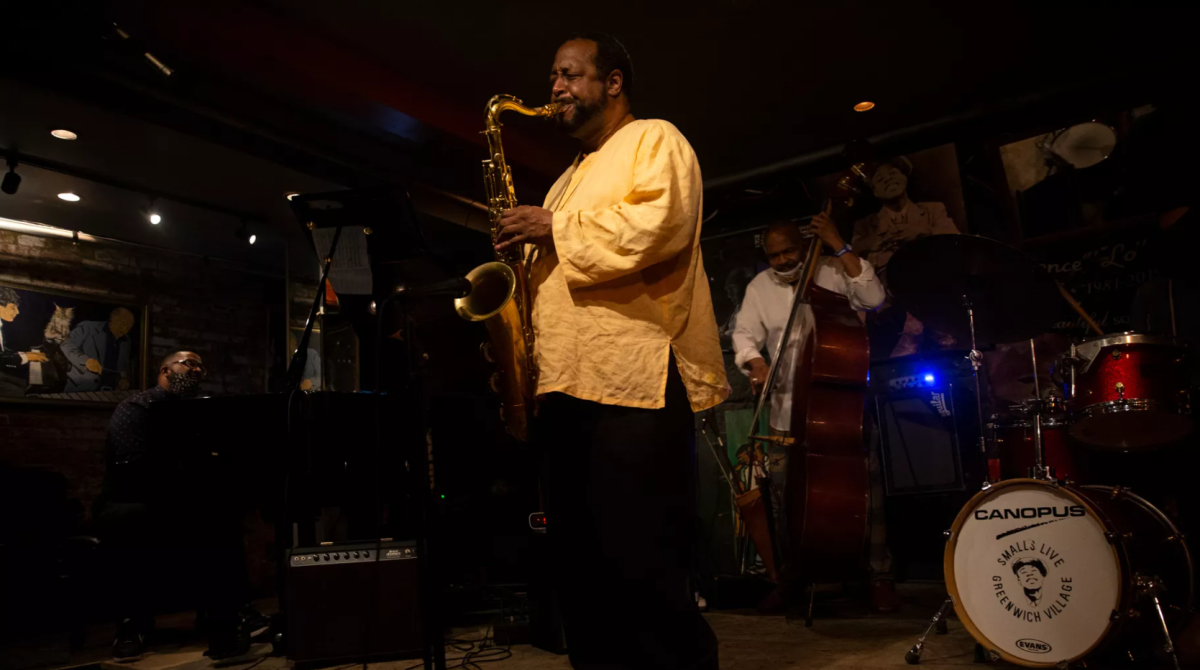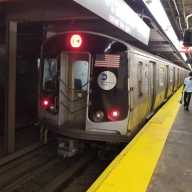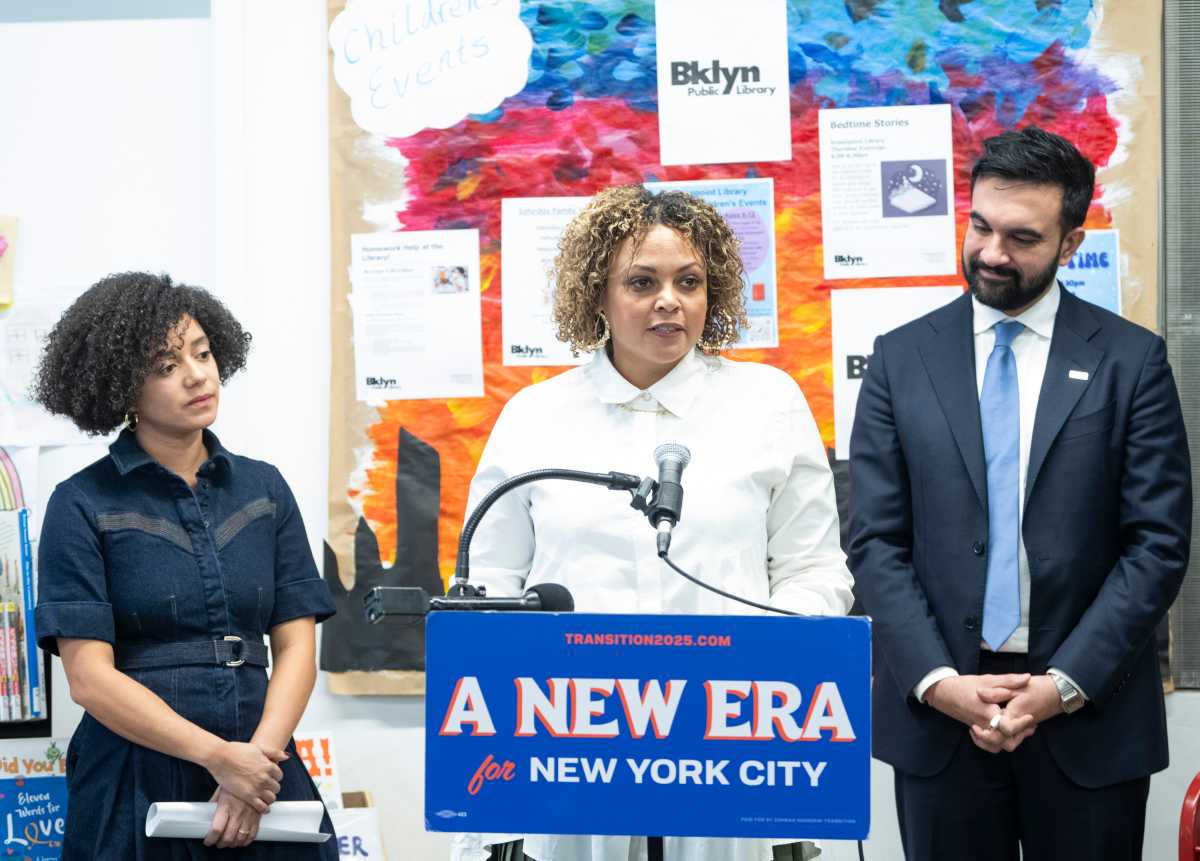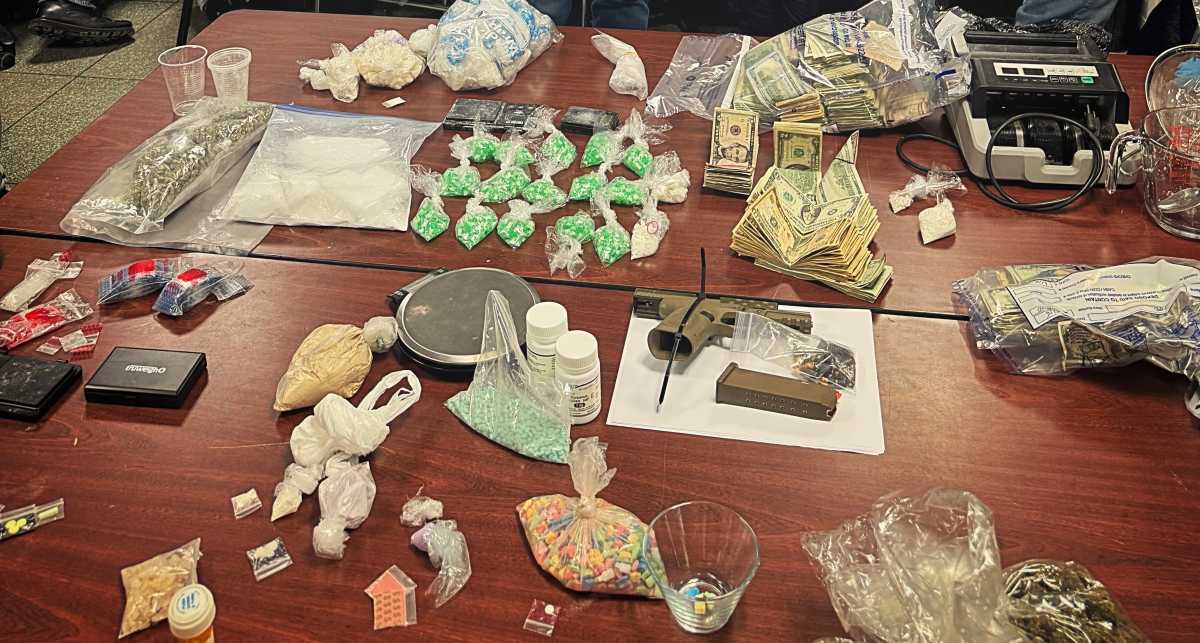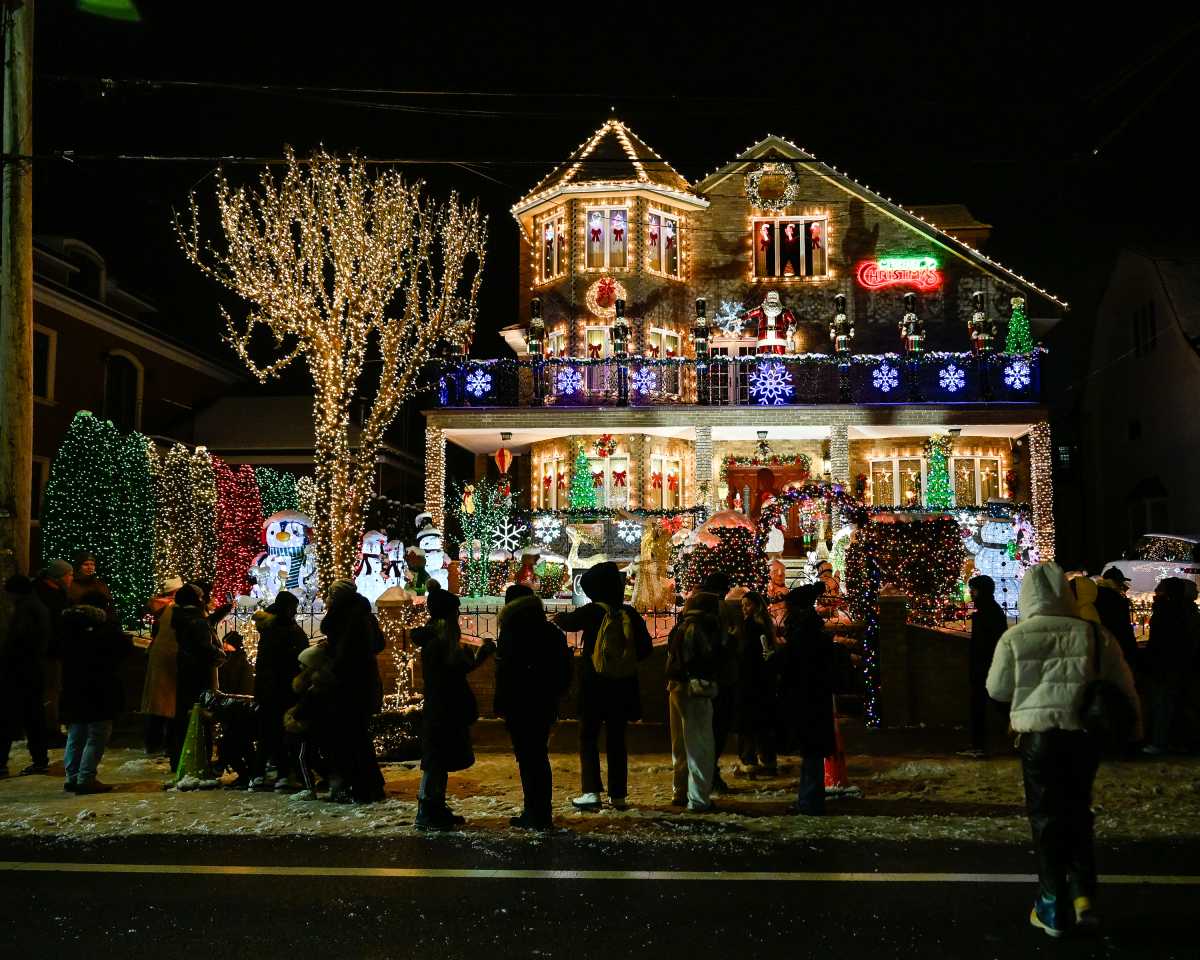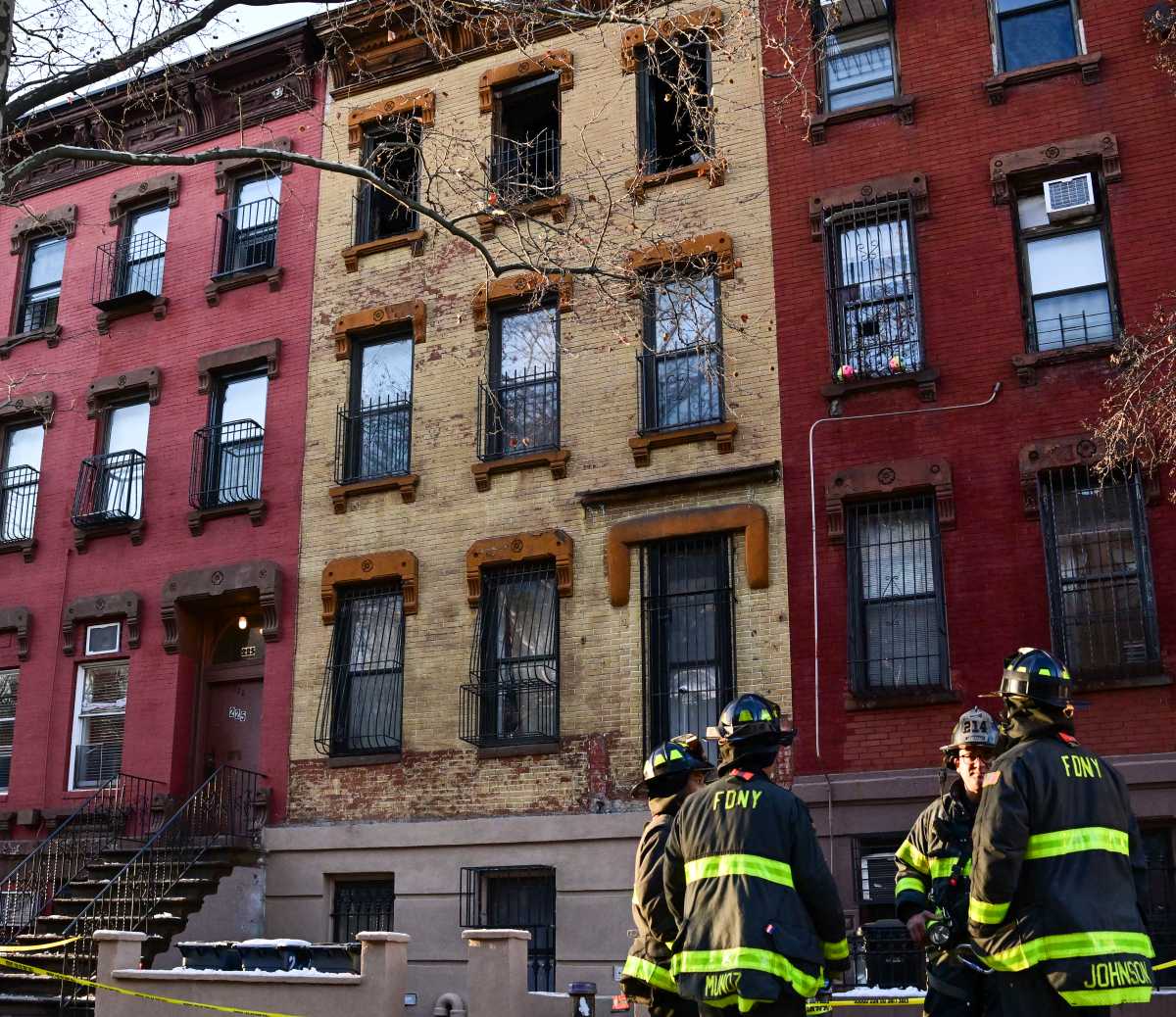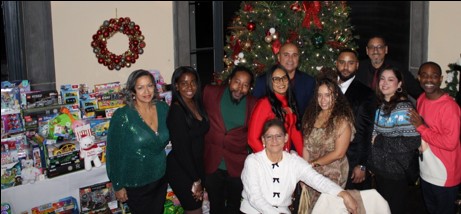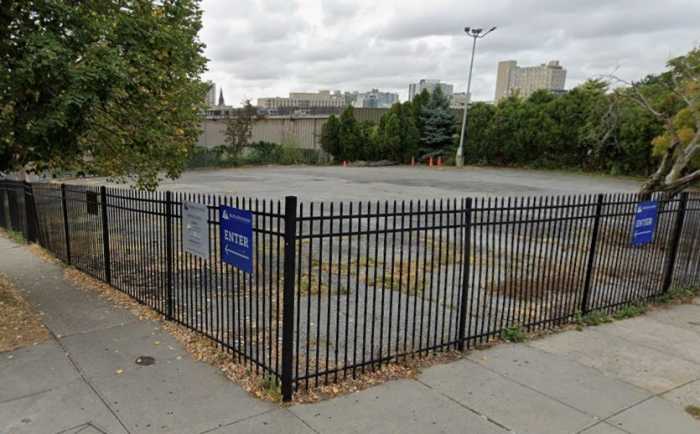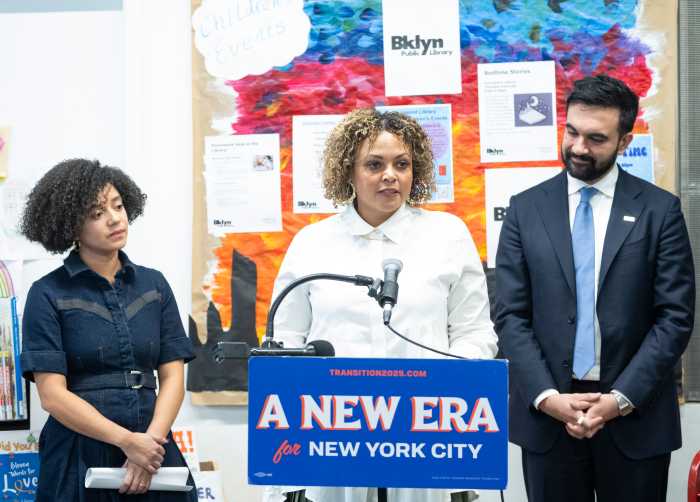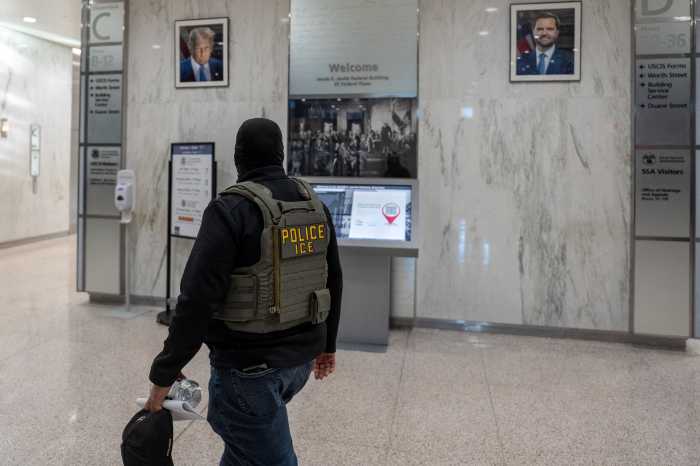BY EILEEN GRENCH, THE CITY. This article was originally published on by THE CITY
“On the 1 train, I’ll be there in 5 minutes,” Carlos Abadie shouted across the bar, reading from his phone. That night’s headliner, a saxophonist, was running late.
In times past, Abadie, the manager at Smalls Jazz Club and a Grammy-nominated trumpeter, would usually be prepping by 4 p.m. for what he described as “a carnival ride” — long lines with patrons begging for tickets to the night’s two packed music sets.
Long known as a musicians’ gathering place, the Greenwich Village fixture would also hold all-night jam sessions full of performers looking to break into the top ranks of the genre.
:no_upscale()/cdn.vox-cdn.com/uploads/chorus_asset/file/21765863/081420_smalls_carlos.0.jpg)
“That’s when the circus comes,” said Abadie. “All types of characters of a dubious nature. I think it’s like a Marvel Comics setting, you know? The Joker and Batman, like Gotham City.… Like the artist’s canvas just came to life.”
As night approached on a recent Friday in mid-August, the scene at Smalls looked utterly different.
A Stream of Fans
Down from 25 full-time staff, Abadie and another colleague were left to manage what keeps the West 10th Street club rolling: a single red light glowing over the empty seats and beer cartons, attached to a ceiling-mounted camera, signaling the live video feed streaming onto the internet.
Jazz at the club — including small, socially distanced ensembles — is live-streamed for free every night at 5 p.m. Meanwhile, Smalls’ costs keep piling up — insurance, over $20,000 dollars in rent a month and more.
A Paycheck Protection Program loan allowed Smalls to hold onto staff for eight weeks.
Now the club is down to three full time employees and is surviving with support from the SmallsLIVE foundation, a nonprofit established by club owner Spike Wilner. Jazz fans donate what they wish to become supporting members of Smalls and Mezzrow, a nearby club also owned by Wilner.
:no_upscale()/cdn.vox-cdn.com/uploads/chorus_asset/file/21757397/060119_smalls_jazz_1.0.jpg)
The foundation acts as an emergency fund for artists, and pays royalties to musicians whose videos can be streamed from a library of over 15,000 archived shows. Before it’s doors closed, Smalls depended on the proceeds of ticket and drink sales.
Since March, the foundation has kept Smalls alive — barely. Wilner said he’s facing bankruptcy if he cannot reopen by January.
“I want us to be mindful of this virus,” he said. “But the arts need a bailout. They need something to keep musicians alive in the city, if there’s not going to be any gigs at all.”
‘Facing Extermination’
All of the city’s ticketed live performances have been on hold since late March under Gov. Andrew Cuomo’s COVID safety measures.
Singing, wind instruments, loud talking, crowding — all are hallmarks of jazz clubs that also are known to propel virus transmission.
Jazz, already on tenuous economic footing, has suffered particularly wounding blows, with the loss of paying gigs and touring opportunities for musicians.
“Up until the pandemic you could look the other way and say, ‘Well, they aren’t making money, clubs don’t pay well. They’re surviving on the margin, but there’s enough clubs and there’s enough work for someone to break through,’” said Loren Schoenberg, founding director and senior scholar at the Smithsonian-affiliated National Jazz Museum in Harlem. “And then something like this hits…and boom.”
Added Schoenberg: “Now we have a situation in which all but the very largest clubs are facing extermination.”
The Village Vanguard, billed as the world’s oldest running jazz club, survived Prohibition, war and upheaval, but this is the first time it has been shuttered to audiences, said owner Deborah Gordon, whose father, Max, started the business in the 1930s. The Vanguard is charging viewers $10 to stream live sets from the club.
“Part of the stress of all this is the uncertainty and the not knowing,” said Gordon. “We’ll hobble along to the best of our abilities for as long as we can.”
Community in Crisis
Dreams of playing in legendary clubs like the Vanguard inspired pianist Arcoiris Sandoval to fill her backpack with a compass, sheet music and snacks, and run away from her Arizona home at the age of 8.
“I meant to take a train to New York City, to the Village,” she said. Her father, a musician, had long regaled her with tales of jazz in New York City. She only made it a couple of miles away.
Sandoval said that a sense of community makes a venue like Smalls such a magnet. “That represents the timeless culture of the music itself,” she said. “A meeting spot for all of the greatest musicians.”
With the clubs closed and that community dispersed, news of the death of fixtures of the jazz community felt even more crushing to their colleagues. Among those who passed away from complications of COVID-19 was jazz great Ellis Marsalis, father of Jazz at Lincoln Center artistic director Wynton Marsalis.
:no_upscale()/cdn.vox-cdn.com/uploads/chorus_asset/file/21788219/Wynton_Marsalis.0.jpg)
“Usually the jazz community gets tight, celebrates the masters of this music,” said pianist Miki Yamanaka, another Smalls regular. “We usually get together, play, celebrate. We couldn’t even do any of that.”
Even as they get creative to keep their clubs going with the doors shut, club owners say state regulators keep piling on obstacles. The latest: The State Liquor Authority, which licenses bars, last month forbade selling tickets or even advertising shows, barring anything other than “incidental” music.
A coalition of mostly non-jazz clubs has filed a lawsuit challenging the rules. A hearing is set for Sept. 23.
“New Yorkers need to remember we are still fighting a global pandemic, and with dozens of states facing outbreaks,” William Crowley, an SLA spokesperson, said in an emailed statement. “We must continue to take the threat of spreading COVID at mass gatherings seriously. New York State continues to look at the data and science — here and across the nation — and will update our guidelines accordingly.”
Sandoval and Yamanaka have nonetheless performed outside restaurants, but the work feeds the soul more than the stomach.
A grant Sandoval received in April from the Louis Armstrong Foundation has helped keep her afloat, along with unemployment insurance. Others she knows from the jazz scene have already left the city or found work in real estate or at Amazon.
“Everybody’s nice to us,” said Yamanaka, “but we’re not getting paid, you know?”
THE CITY is an independent, nonprofit news outlet dedicated to hard-hitting reporting that serves the people of New York.
